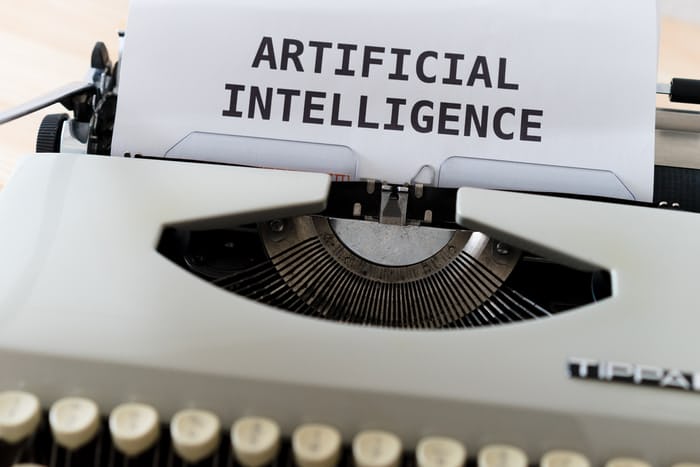A report by world economic forum on the future of Data Science careers notes:
Jobs such as Artificial Intelligence and Machine Learning Specialists or Data Scientists, in which data science skills are perhaps most profoundly applicable, are forecasted to be among the most indemand roles across most industries by 2022.
Demand for data science talent is growing, and companies are still facing a shortage of skilled data scientists.
Data scientists' role is not limited to any one particular industry or line of business, leading to the creation of ample job opportunities in this field.
If you are an aspiring data scientist or someone who is already heading down that path, you know that knowing the right skills is the mandatory aspect.
There are data science skills that will transcend disciplines, and developing these skills will help separate you from the crowd of job applicants and scientists as the field grows.
We have listed for you the most in-demand skills that employers look out when hiring a data scientist, and those include –
Along with these skills, we have curated some handpicked courses that can help you develop that skill and have a successful career as a data scientist.
Artificial Intelligence
AI has brought about a shift in data science and has rapidly changed the work landscape.
Hiring trends for AI specialists show a growth of over 70% in the past 4-5 years, and because of this substantial growth and increased adoption by the organizations.
This gives a valid reason why you should upskill yourself and learn the essentials of AI.
Some of the top courses that can help you master AI include –
- AI For Everyone by IBM on Coursera
- Applied AI with Deep Learning by IBM on Coursera
- Knowledge-Based AI: Cognitive Systems by Udacity
- Artificial Intelligence for Robotics by Georgia Tech Masters on Udacity
- Welcome to Artificial Intelligence
- Expand Your Knowledge of Artificial Intelligence by Udacity
- Intro to Artificial Intelligence by Georgia Tech Masters on Udacity
Big Data
A report by Statista suggests that revenues from Big Data applications and analytics will grow from $5.3 billion in 2018 to $19.4 billion in 2026.
Businesses seek professionals with the knowledge of big data to manage big volumes of structured, unstructured, and semi-structured data.
You can learn this highly in-demand skill through these online courses -
- Managing Big Data with MySQL by Duke University
- Big Data Fundamentals by the University of Adelaide
- Big Data and Education by the University of Pennsylvania
- Big Data Engineering
- Big Data Engineering Training Course
- Security and Privacy for Big Data - Part 2 by EIT Digital on Coursera
- Managing Big Data with MySQL by Duke University on Coursera
- Google Cloud Platform Big Data and Machine Learning Fundamentals on Coursera
Machine Learning
Machine learning remains the foundation of data science tasks.
Machine learning aims to create systems that can predict the course of events, respectively, thus it is in high demand.
It enables us to draw useful conclusions based on data matrices.
Those who begin taking online courses in machine learning now will still be getting in relatively early, as demand is only increasing from here.
A report from McKinsey suggests that 49% of companies are currently exploring or planning to use machine learning.
Courses you can consider to learn more about machine learning are -
- Complete Machine Learning and Data Science: Zero to Mastery
- Machine Learning by Georgia Tech
- AI Workflow: Machine Learning, Visual Recognition and NLP
- Essential Math for Machine Learning: R Edition by Microsoft
- Machine Learning for Data Science and Analytics
- Machine Learning Specialization
- Postgraduate Certificate Program in Cloud Computing
- PG Certificate Program in Machine Learning and Big Data Analytics from CSTCP-IIIT Allahabad
Python
Python is called the primary language for data science specialists.
Being an open-source language, it is extremely popular.
Python includes high-level data structures, dynamic typing, dynamic binding, and features, making it suitable for complex application development.
A vast majority of new data tools are compatible with it.
Learn Python through these online courses -
- Using Databases with Python by University of Michigan
- Applied Data Science with Python Specialization by the University of Michigan
- Complete Data Science Training with Python for Data Analysis by the University of California, San Diego
- Programming for Data Science with Python
- Problem Solving, Python Programming, and Video Games by the University of Alberta on Coursera
- An Introduction to Interactive Programming in Python (Part 1) by Rice University on Coursera
- Python for Data Science by the University of California, San Diego on edx
R Programming
From extracting key statistics out of a data set to reshaping data to analyze it better, R programming offers a variety of applications.
It helps to churn the raw data and help users analyze, process, transform, and visualize information.
Data scientists, statisticians, and data miners have been extensively using R Programming in statistical analysis, data analysis, and machine learning.
R programming has proved to be an essential skill to have a successful data science career.
If you wish to learn R programming, the following courses can be helpful.
- The R Programming Environment
- R Programming
- R Basics - R Programming Language Introduction by Udemy
- Learn Data Science With R by Udemy
- Statistics and R by Harvard University on edx
- Data Analysis with R by Facebook on Udacity
- Programming for Data Science with R
Cloud
Cloud is another in-demand skill for data science and machine learning, and this trend is speculated to grow stronger in the coming years.
It allows setting up a very fast machine learning environment that can be remotely accessed.
According to Gartner, the market for public cloud services is projected to grow by 17% in 2020 to a total of $266.4 billion.
The most in-demand cloud computing skills are Amazon Web Services (AWS), Java, Linux, DevOps, Docker, and Infrastructure as a Service (IaaS).
Learn Cloud through these popular courses -
- Cloud Computing Applications, Part 1: Cloud Systems and Infrastructure on Coursera
- Cloud Computing Applications, Part 2: Big Data and Applications in the Cloud on Coursera
- Cloud Computing Specialization on Coursera
- Cloud Computing Infrastructure on edX
- Cloud Computing Concepts Part 1 on Coursera
- Introduction to Cloud Infrastructure Technologies on edX
- Architecting with Google Compute Engine Specialization on Coursera
Data Visualization
Data visualization refers to techniques used to communicate insights from data through visual representation including charts and graphs.
To help the human brain interpret and pull out meaningful data insights, data visualization has emerged as a savior and is a very important data science skill to pick.
Learn data visualization with these online courses -
- Data Visualization: A Practical Approach for Absolute Beginners by Microsoft on edx
- Data Visualization with Tableau Specialization on Coursera
- Data Science: Visualization (using R) by Harvard University on edx
- Introduction to Data Visualization in Python on DataCamp
- D3.js Data Visualization Fundamentals on on Pluralsight
Deep Learning
Deep learning is a subset of machine learning and is a prominent skill to master.
It is best suited for specific domains like image recognition and natural language processing (NLP).
Moreover, deep learning has its applications across different industries including automated driving, aerospace and defense, medical research, industrial automation, electronics, etc., leading to extensive job opportunities.
Some courses to learn deep learning include -
- Deep Learning for Business by Yonsei University on Coursera
- Neural Networks and Deep Learning on Coursera
- Neural Networks and Deep Learning on Coursera
- Deep Neural Networks with PyTorch by IBM on Coursera
- Deep Learning with Tensorflow by IBM on edx
- Deep Learning with Python and PyTorch by IBM on edx
- Introduction to Deep Learning by National Research University Higher School of Economics on Coursera
Knowledge of Analytical Tools
Knowledge of analytical tools such as SAS, Hadoop, Spark, Hive, Pig, etc. have become increasingly common in the field of data science and are among the most sought after skills.
They help to extract the information and modulate it while ensuring a deep analysis based on a multitude of parameters and statistical formulae.
Learn analytical tools through these courses -
- The Ultimate Hands-On Hadoop - Tame your Big Data! on Coursera
- Hadoop Platform and Application Framework on Coursera
- SQL, NoSQL, Big Data and Hadoop on Udemy
- Spark and Python for Big Data with PySpark on Udemy
- Taming Big Data with Apache Spark 3 and Python - Hands On! on Udemy
- Apache Spark 2 with Scala - Hands On with Big Data! on Udemy
- Spark, Scala and Storm combo on Intellipat
Math & Statistics
Math and Statistics form the foundation of machine learning algorithms and are the crucial elements of data science for tasks like data analysis, data sorting, and visualization.
As a data scientist, you must have knowledge of calculus, linear algebra, statistics, and probability theory.
Learn math and statistics through the below courses –
- Statistics and R on edX
- Intro to Inferential Statistics on Udacity
- Statistics for Data Science and Business Analysis on Udemy
- Essential Math for Machine Learning: R Edition on edX
- Intro to Statistics on Udacity
- Why Numbers Matter: Quantitative Research on FutureLearn
- Statistics on Udacity
- Bayesian Statistics: From Concept to Data Analysis on Coursera
Do not get overwhelmed by the long list of skills and courses.
Pick skills you believe are necessary for your job profile and we are sure you will have a remarkable growth curve as a data scientist.
Keep growing!







